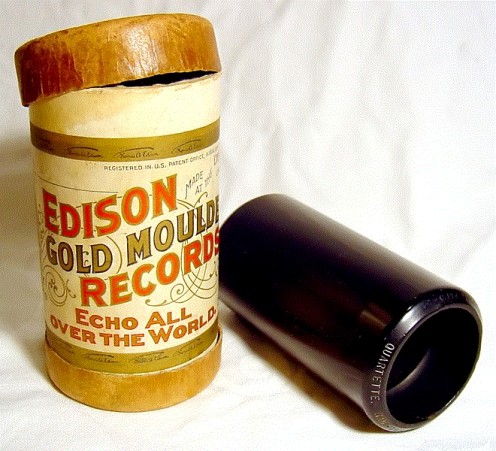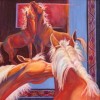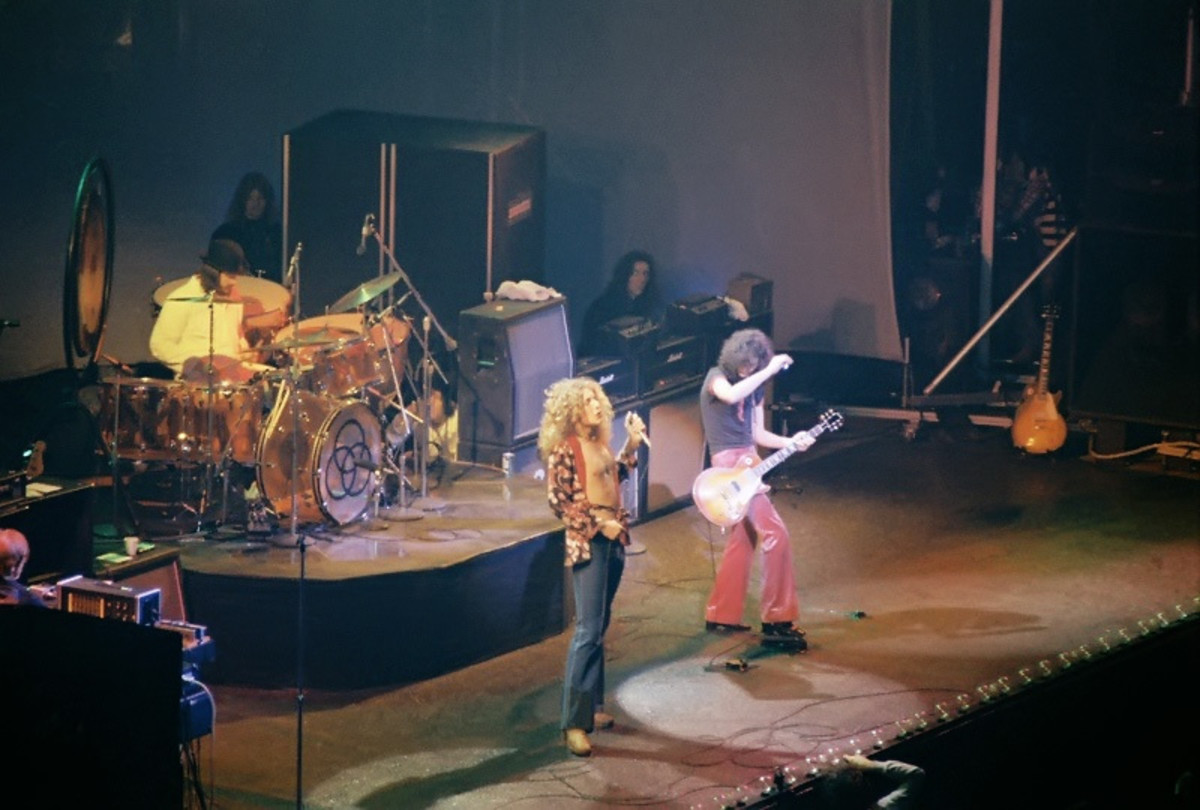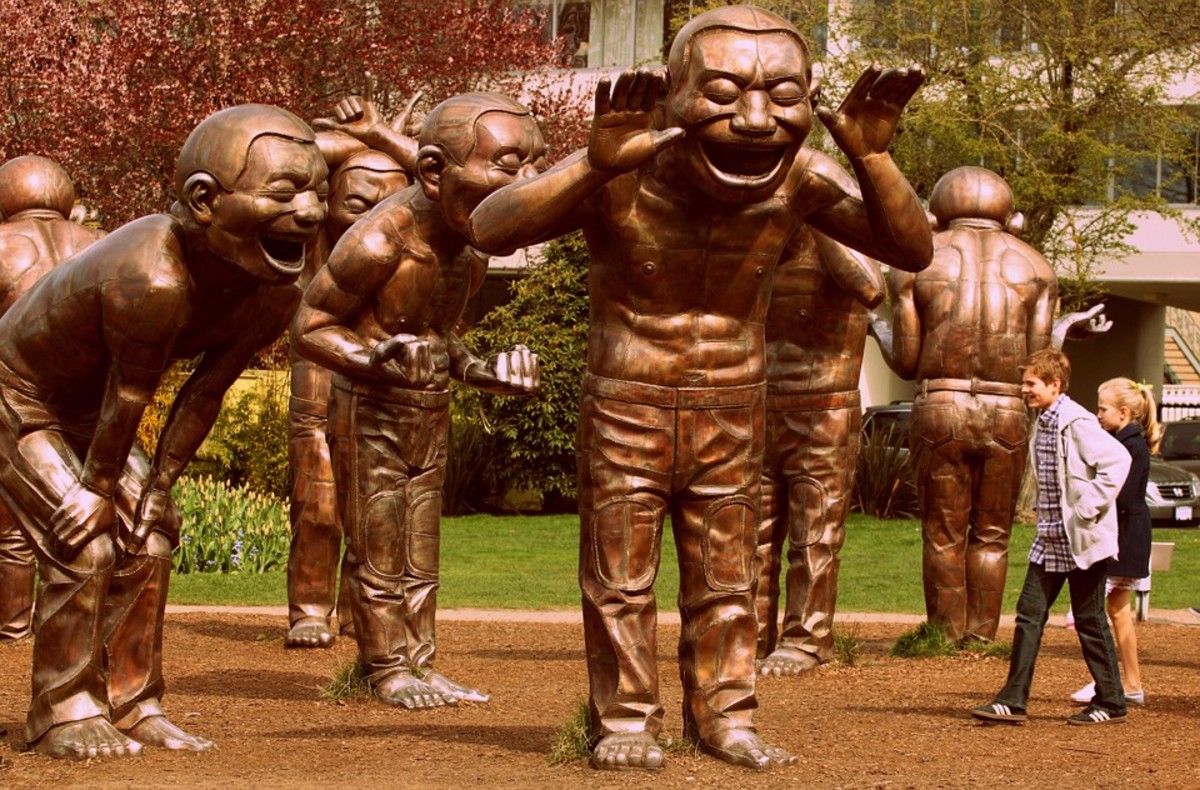Canned Laughter
Laugh Track - from Hollywood Laugh Tracks on YouTube
In the past few years, canned laughter has seen a revival of usage in broadcast cable television.
The first usages of canned laughter were attempting to exercise the notion that "laughter is infectious". It was used to help trigger laughter from the audience. Early comedy shows survived if people laughed at them. However, the entertainment industry learned fairly on that sometimes their presentations were not deemed anywhere near as funny as they had expected. People failed to watch, advertising time failed to be sold, and shows were cancelled. Shows that sought to survive (and sell advertising time) learned to use canned laughter to trigger audience laughter. It was their last chance type effort to try to turn something not so entertaining into something that would be watched.
If we laugh, it is a sign that we are paying attention. We are paying attention regardless of whether the subject matter is laughable or not. An enduring column in a classic magazine named “Reader’s Digest” was a column called “Laughter is the Best Medicine”. The column was jokes submitted by readers. For the most part, they were funny. In the house I was raised in, we would turn to that section of magazine before reading the rest. In fact, sometimes the joke sections were the only sections that were read.
On television, the use of canned laughter was not always appropriate. In some cases, it was used as a way to ease the tension of discussing difficult social topics, of the sort that folks used to be afraid to discuss.
The one consistent thing over the years is that canned laughter was nothing more than a technique to encourage the audience to enjoy the show, so that the entertainers could sell more advertising.
People Laughed At Trump - from Bat Man on YouTube
Recent Usage of Canned Laughter
During and shortly after the Presidential Election of 2016, many people believed that Donald Trump could not win the Presidency. Ironically enough, most of those who rejected the possibility were from the entertainment industry. Early on, they made it a point to treat the possibility as a laughable idea. The usage of canned laughter became noticeable in relation to the businessman Donald Trump campaigning for President.
After he was elected, a video summary of these laugh tracks was pulled together by one of our most hotly discussed news networks. It was presented with the unstated question “Who is laughing now?”
The background to the video was Edvard Grieg's In The Hall of the Mountain King.
That laughing video was taken down in 2021 after Biden was elected to replace Trump.
Lyrics of "Hall of the Mountain King"
Slay him! The Christian man's son has seduced
the fairest maid of the Mountain King!
Slay him!
Slay him!
May I hack him on the fingers?
May I tug him by the hair?
Hu, hey, let me bite him in the haunches!
Shall he be boiled into broth and bree to me
Shall he roast on a spit or be browned in a stewpan?
Ice to your blood, friends!
In The Hall of the Mountain King
That music has a history. It is named "In the Hall of the Mountain King."
Like modern words, and like modern laughter, this music means something different to everybody. Additionally, new meanings coming into existence as time passes.
The music was originally a piece composed by Edvard Grieg, and intended to be played by symphonic orchestra. In the beginning, the music was associated with a story of a dreamers visit to a troll king, the troll king under the mountain.
In modern times, the story of Peer Gynt is told by cartoon, and is clearly is indicative of a bad dream.
In this version, a young man falls asleep outside a cave. While sleeping, he is dragged into the cave by trolls, encounters the troll king, is offered half the troll kingdom if if he marries the troll king's daughter, and eventually runs away.
Wikipedia tells us the lyrics that went with a song from this story.
CAUTION: The lyrics are consistent with an imaginative characterization of imaginary trolls.
When in the company of friends, this would go without saying. However, the audience on the internet sometimes has the rather awesome capacity to deliberately misunderstand and relay that misunderstanding as truth, so it needs to be said, and even repeated.
The lyrics are consistent with an imaginative characterization of imaginary trolls.
Ibsen's “Peer Gynt” - Illustrated
- Stella & Rose's Books : Ibsen's Peer Gynt Illustrated By Arthur Rackham | Featured Book
Featured book article about Ibsen's Peer Gynt illustrated by Arthur Rackham
Peer Gynt
In some ways, this cartoon retelling remains consistent with original story. The original story comes from a play named "Peer Gynt" by Henrik Ibsen, a playwright in the 19th century. It is story of how men are seen when their stories blend between reality and fantasy. It is also a story of men and trolls, but unlike the cartoon, contains some meaningful dialog.
Early Recording Cylinder

A Well-Known Commentary
Canned - What If We Take The Funny Part Out?
So, we've come a long way from canned laughter, but as some might be guessing we are about to come full circle, or should I say, full can. What does it mean when we call something "canned"?
In modern times, combined audio and video is saved communally and available for re-use by just about anybody. Like early times it is sometimes used for topics we don't want to talk about. Or it used as a way to discuss things so unacceptable to our reality that we seek to trigger others to also laugh at those difficult to discuss realities. Canned laughter, in fact, any recorded material is not always used for its original intended purpose.
In modern day times, we use canned laughter to laugh at things we believe are too fantastic to be true. It has evolved from "laugh with us", to "let us all laugh at someone else". When reality sets in, the meaning of that same canned laughter becomes the topic of the day.
Specific definitions are as follows:
- Stored in a can - As in "Vegetables are canned for long-term storage and to keep them from going bad before being opened to be eaten."
- Taped for Re-Use - In the early days of tape recordings, recorded tapes were stored in small cans.
- Drunk - We might refer to folks who care little of politics, and drink too much to avoid thinking about it, as being canned.
- Fired - The phrase "You're Fired" has become famous in recent years. How different would it sound if the phrase was "You're canned!"
Is this Laugh Canned?
One Additional Thought
My grandfather was a resident of Washington, D.C. He retired from civil service after working for forty years. He used to say something like “It is okay to dream, but be sure you keep your feet on the ground when you do so.” The message he was trying to convey was “whatever it is you want to do, be ready to work to do it.” Over the years I came to understand that this was the difference between a pure academic and a pure pragmatist.
We never laughed at that.






